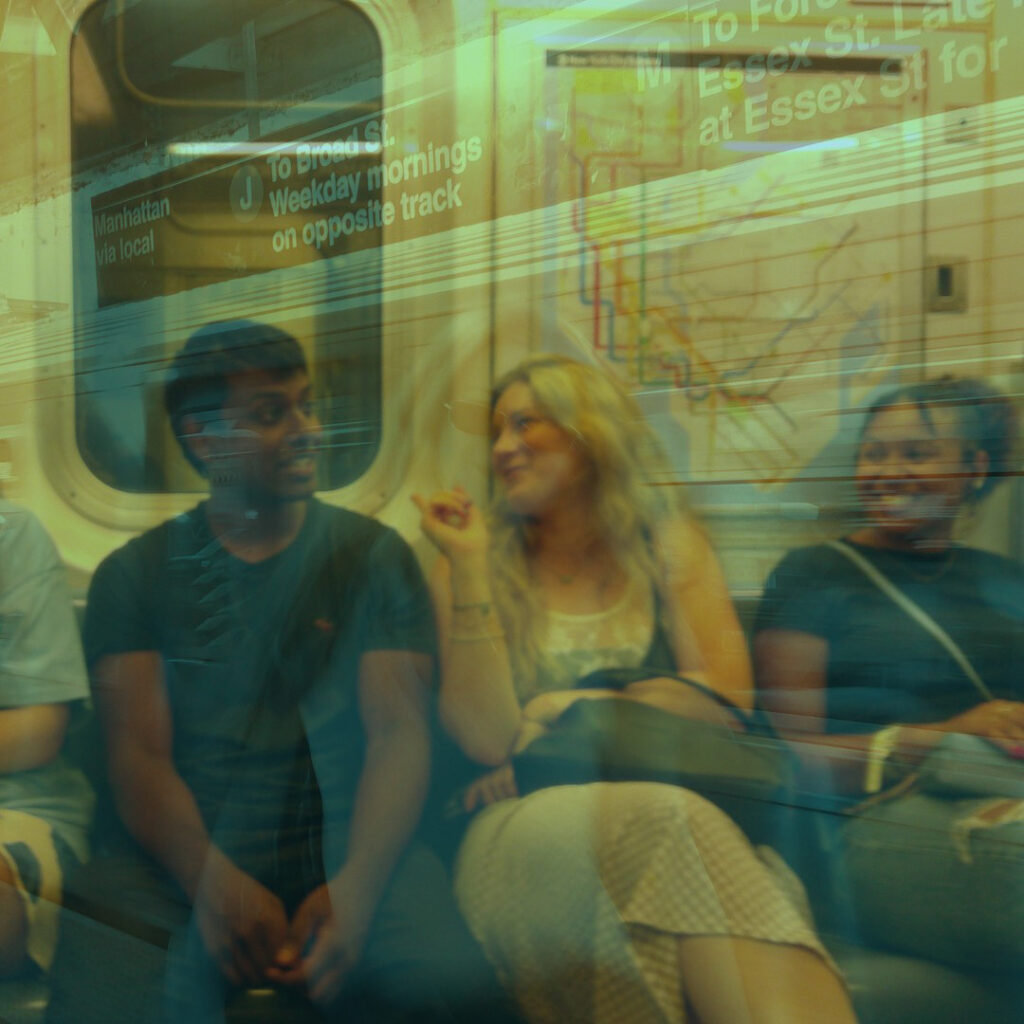Fate Uses Train Cars to Make Necessary Introductions
By Carissa O’Donnell | 10/15/2025
Carissa O’Donnell
APTA Student Member

Train cars are often found in the busiest of spaces—places where cars lag behind the pace and density of society. Train cars run beneath the chaos; immune to the bustle but imperative to its operations. Most who take the train have no idle time.
Above ground, we chase overstimulation and preoccupation; below ground we lay idle, intent only on passage and conveyance. There’s nothing of purpose to do on the subway; no cell service to warrant preoccupation—A captive audience, if you will.
A captive audience of strangers with similarities unbeknownst to them: strangers with similar habits and routines that make them not so strange at all. Acquaintances that chose the same train at the same time; that entered through the same door. In a world so passively different, paralleled decisions create a brief yet transient community rich in similarities.

Fate uses train cars to make necessary introductions because we remain too busy to make them ourselves. The confluence of idle time and a captive audience of not-so-strange strangers is an incubator of familiarity, of community, and of opportunity.
Imagine driving a car! Looking, but never connecting with those that share your habits and routines—fate’s necessary introductions barred by car doors and highway lanes. How lonely that must be.
Yet we have grown to correlate this loneliness with independence: a freedom the train car could never grant us. Sacrificing idle time for transporting anywhere at anytime—with anyone, or with no one. Fewer people ride the train car if offered a personal car; fewer people recognize the magic of unprecedented communities that collectively share their only sliver of idle time amongst one another.
Instead, a pattern unfolds and overlays railroads with highways and bus routes with toll lanes—Americans have become more lonely, and we can’t understand why.
What I do know is that fate uses train cars to make necessary introductions, and the craving of automotive autonomy has destroyed the landscapes; the captive audience of not-so-strange strangers; the sharing of idle time that was fate’s vessel to community—And how lonely that must be.
I met my soulmate on the subway ride to work. I thought it chance that a stranger would have the same commuting times as me; more strange that they always chose my same train car and door. My curiosity overpowered my typical avoidance of strange things—we struck up a conversation that has entirely altered my five-year plan. It had me think more deeply about the places still opportune for real, authentic connection—places where we can just exist ambiguously in society. I’ve decided that it is the train car commute; the place where you have no choice but to remain idle among others in a world so determined to garner your attention and time.
Carissa O’Donnell is a legislative fellow with the NY State Senate. She graduated Oct. 15, 2025, from the Columbia Climate School, NY, with an MA in Climate and Society.